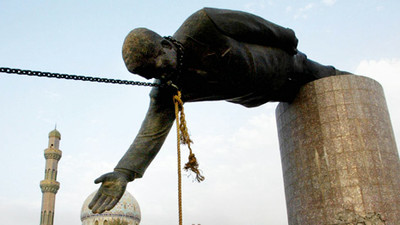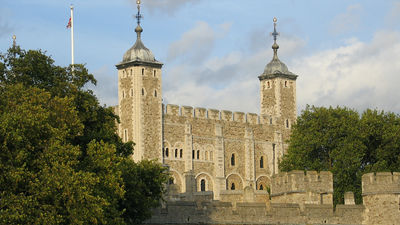A historian talks about the worst 'black curtain that tried to control politics behind the scenes'

In the past, there were a number of people who tried to manipulate politics behind the scenes, pretending to be political advisers as if they were counseling for the country, and frustrating themselves. Historians tell who is the worst of the blackouts trying to control politics for wealth and power.
Who is History's Worst Political Adviser? | History Today
Peter Francopan , Professor of World History at Oxford University, cites Nikeforitsis of the Byzantine Empire. 'In the late 11th-century Byzantine Empire, too clever and cunning counselors polarized the society and led the economy into destruction,' said Francopan.
In the Byzantine Empire in the second half of the 11th century, Emperor Michael VII relied on the advice of eunuch Nike Foritsis for political administration. Although the Emperors rated Nikeforizis as 'generous and wise' and 'reasonable,' most of the non-emperors were Nikeforizis's unsophisticated and aggressive behavior, as well as keeping others out of important meetings and empressing others with the emperor. He said he was dissatisfied with actions that would limit contact with the company excessively. Nikeforitsis, who also had a arrogant personality, was openly disdained for those who criticized him.
The policies introduced by Nikeforitsi's advice, though written well in writing, were in fact very distressing to the people. Nikeforitsi's advice has led to policies such as increasing taxes to increase public spending, faking plans to stabilize grain supply and prices and introducing a centralized distribution system. However, these policies have caused food shortages and inflation, causing confusion in the world.
While some were angry at Nikeforitsis, many criticisms also gathered at the emperor. It is written in the literature that Michael VII was accused and described as 'lacking stable judgment.' In addition, Michael VII was said to have been too lazy to make decisions, let alone politics, and entrusted Nikeforitsiz with much political management. Due to bad politics, the Emperor was deposed, Nikeforitsis was banished, and the Empire's status dropped.

Katharine Edwards, a professor of classical and ancient history at the University of London, cites
In addition, Seyanus plans to assassinate Drusus, the son of the emperor, who was not familiar with himself. Having an affair with Drussus' wife, Liwilla, he succeeded in inviting Drussus' eunuch as a conspirator and poisoning him. And Seyanus attacked his opponent Tiberius' relatives one after another and defended himself.
Seiyan's plot to remove the adversary by vicious means was uncovered by Tiberius' brother's wife, Little Antonia, and reached Tiberius' ears. The emperor captures Seyanus as a rebel and executes it. It seems that the public's dislike of Seiyan was considerable, and the body of Seiyan was torn by a mob and abandoned in the river, and the statue of Seyan in the city was destroyed by the mob. In addition, Seiyanus' relatives and children were also executed.

Levi Roach, an associate professor of history at the University of Exeter, says Edrick Streona, an aristocrat in the
Streona, married to Edith, daughter of King Ezerred II of England, established himself as a leader after a coup d'etat at the Court of Mercia in the Kingdom of Wessex in 1005-1006. Streona is said to have taken the coup and executed the Northern Briar aristocrats for execution.
Streona is said to have focused more on earning wealth with his brothers than on country or status. The dispute between the Streona brothers and the Sussex leaders in 1008 resulted in the loss of much of the country's fleet. Also, at a rally held in Oxford in 1015, Streona reportedly countered an adversary faction by tricking an influential man in the court into his room and assassinating him.
It was Knut I 's invasion of England that caused Streona's malicious behavior to be the subject of public criticism. Following the invasion of Knut I, Streona moved to Denmark in 1015. After that, he returned to the kingdom of Wessex in 1016 after the death of Ezerred II, but he re-exiled when the Battle of Asandung occurred in the same year, and the battle ended with the victory of Knut I. Streona's exile was considered a betrayal, and Streona was executed after the Battle of Asandung.

Related Posts:
in Note, Posted by darkhorse_log







